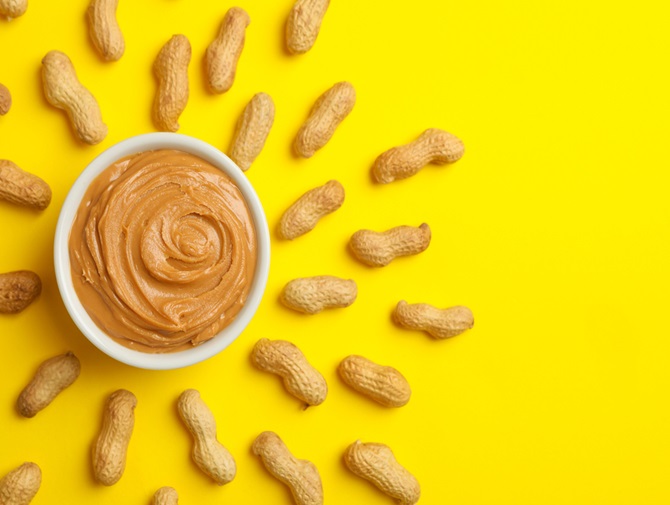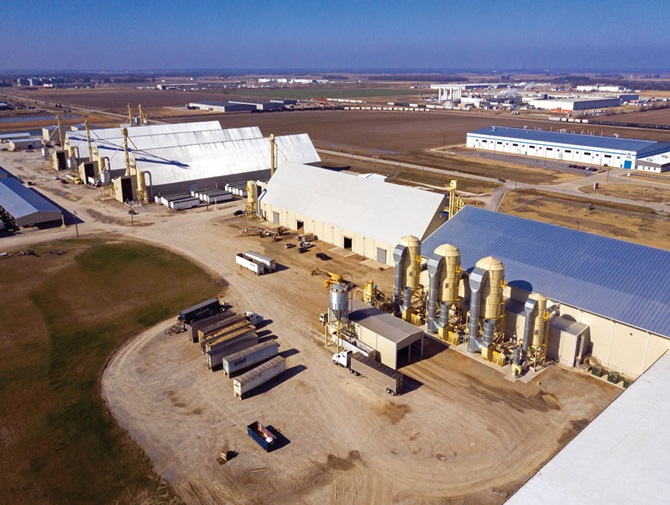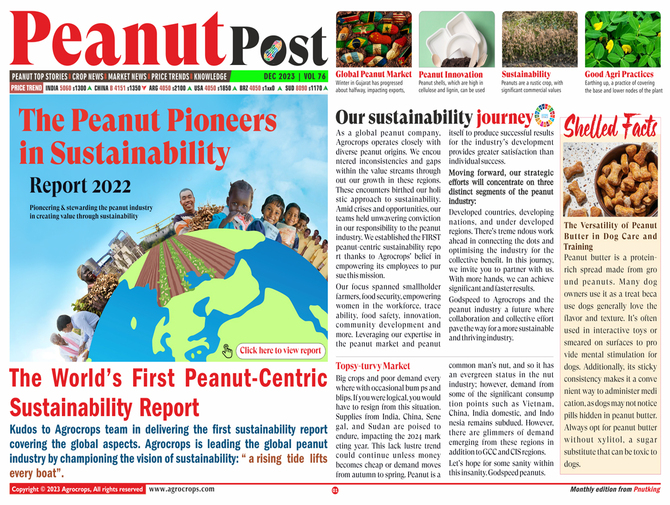

An ounce of information

Article by Pnut King
Published on 01/02/2024 in Peanut News
Discover the ideal groundnut for perfect peanut butter—Somnath. With its unmatched flavor, texture, nutrition, and colour, it's the top choice for high-quality spreads. Consider Somnath for a delightful and wholesome creation loved by consumers.
Peanut butter is one of the most popular peanut products in the .
In 2022, the peanut butter market was valued at $6.08 billion, and it is forecast to grow 6.9% each year, hitting $9.09 billion in 2028. India’s peanut butter market is valued at $97.2 million, but it’s growing faster, at 8.02% year-on-year.
Peanut butter is widely loved for its delicious flavour, great texture, and nutritional benefits, and is gaining popularity as a low-calorie, high-protein food, building on existing demand in regions like the US and .
Whilst historically in India peanut butter has only been available in metropolitan cities and large shopping centres, it is becoming easier to purchase peanut butter elsewhere as demand grows.
As a result, the market is crowded, and manufacturers have to work hard to make the best-tasting peanut butter they can.
That makes choosing the right groundnut essential, as it has such a significant impact on the taste, chemical composition, and nutritional profile of the butter. With Indian growers producing a range of different varieties, it can be difficult to work out which is best suited to peanut butter manufacturing.
A groundbreaking study carried out by NK Dhamsaniya, NC Patel, and MN Dabhi investigated seven leading peanut varieties grown in India. By putting the ICGV86325, Somnath, DRG12, GG6, JL24, ICGV37, and BAU13 varieties through strict testing, they explored which would make the best peanut butter, and uncovered tips for how manufacturers can make their own selection, across flavour, texture, composition and colour.
Here are the key areas to consider:
Flavour has to be the most important element in good peanut butter. The study used a panel of experts to find the best peanut butter blend, each of which had been produced using an identical process of roasting, blanching, splitting, and two-stage grinding, with the addition of salt and sugar.
The panellists concluded that there was very little flavour difference between the Somnath, GG6 and JL24 varieties, all of which scored highly. The other four varieties scored poorly, however, making them unsuitable for peanut butter.
Getting the right textural composition in your groundnut variety is important for making sure your peanut butter is spreadable, and yet firm enough.
By measuring the maximum adhesive force required for cone penetration and withdrawal, the researchers found that the Somnath variety performed best, with the lowest force required. That makes it the most ideal texture for peanut butter, with the GG6 and ICGV37 varieties also performing well.
The best peanut butter groundnut varieties are nutritious as well as delicious, and this measure largely depends on the fatty acid composition of the oil.
Groundnuts used for peanut butter production are processed in a way that all the nutrients are preserved, making it a wholesome food option.
By analysing the oil and protein content of the peanuts, the researchers were able to draw some conclusions about the nutritional value of each mix. The oil content varied between 45.6% and 51.1%, while the protein content ranged from 19.5% to 24.2% among the different groundnut varieties, with the GG6 and JL24 varieties boasting the highest proportion of protein.
Similarly, the researchers evaluated the predicated shelf life of the different peanut butter blends, and found that BAU13 and the Somnath varieties were likely to perform better, thanks to a higher stability index.
Finally, as a consumer product, the colour of natural peanut butter makes a significant impact on its marketability.
The researchers found that blends made from Somnath and DRG12 groundnut varieties exhibited the most attractive greyish-orange colour, although the other blends did not vary vastly in colour. Creating test batches is essential for manufacturers to be sure their peanut butter will look the part.
The researchers found the Somnath groundnut variety to be the most suitable for producing peanut butter, thanks to its flavour, texture, nutritional value, and colour. Although other varieties performed well, Somnath provided the best balance of these elements.
When choosing your groundnut variety, it’s important to consider all of these factors, as you strive to make high-quality peanut butter that your consumers will love.
With over 17 years of experience in the peanut industry and numerous awards recognising his contributions, he founded Agrocrops in 2008, a leading global peanut company. His passion for peanuts drives his commitment to improving the industry for all stakeholders and promoting sustainability.
.jpg)
Published on 14/04/2025 in

Published on 04/04/2025 in

Published on 02/04/2025 in
.jpg)
Published on 01/04/2025 in

Published on 12/29/2023

Published on 12/21/2023

Published on 12/05/2023
.jpg)
Published on 12/04/2023
